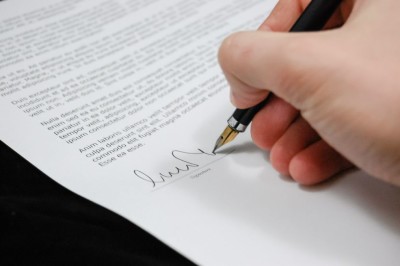This post may contain affiliate links. If you make a purchase through a link, I may receive a small commission, at no cost to you. These commissions help keep this website up and running, and I thank you for your support. Read my full disclosure here.

Ireland has minimum standard employment legislation in place to provide rights to all employees. Rights can vary between industries, but there are minimum standards in place. Below are small excerpts of these standards.
Employment Contract
The employee must receive a written contract clearly outlining the terms and conditions of their employment that includes details of the following information:
- The title and nature of the work.
- Pay
- Paid leave
- Sick leave
- Hours of work, including overtime
- Pensions
- Notice period that the employee is require to give and entitled to receive
- Any collective agreements that directly affect the terms and conditions of the employment contract.

Pay
Employees must receive payslips which clearly detail gross pay and deductions.
The amount that you get paid is typically negotiated between you and your employer. However, in some sectors the rates of pay are set by Registered Employment Agreements (REAs) made by collective agreements.
Minimum Wage
Ireland has a National Minimum Wage Act which sets the minimum wage for trainees, employees under 18 years of age, and adult employees 18 years of age and over. This does not stop the employer from offering a higher wage, but ensures that they provide you a minimum. For more information about how these rates are calculated, see the Citizens Information website.
Salaries
Like most European countries, incomes are less that you might expect in other countries such as the U.S and Australia. However, those with unique skills in high demand may find themselves being offered high salaries.
Holidays
Annual Leave
All employees that have worked at least 1365 hours per year are entitled to a minimum of four weeks paid holiday per year. This includes full time, part time, temporary or casual employees.
Public Holidays
Most employees are entitled to paid leave on public holidays and they receive one of the following:
- A paid day off
- An additional day of annual leave
- An additional days pay
- A paid day off within a month of the public holiday
If the public holiday falls on a weekend, you do not have the automatic entitlement to have the next working day off. It is up to your employer whether you need to work that day. They can provide you with any of the above four options.
Part-time employees who have not worked for their employer at least 40 hours in total in the 5 weeks before the public holiday are not entitled to the holiday benefits.
Other Leave
Sick Leave
Employees have no right to paid sick leave under the employment laws. It is up to the employer to decide on their own sick leave policy and they must provide you with the terms of this in your employment contract.
Maternity Leave
All female employees are entitled to maternity leave if they become pregnant whilst in employment. Ireland provides 26 weeks of maternity leave benefits as well as 16 weeks of additional unpaid maternity leave. At least 2 weeks of leave must be taken before the expected birth date and at least 4 weeks after.
The maternity benefit will only be paid if you have made sufficient PRSI contributions (social insurance) to be eligible. Applications for the benefit should be made at least six weeks before maternity leave is due to start, or 12 weeks if self-employed. The Department of Social Protection is responsible for issuing the Maternity Benefit.
Learn more about the Irish Maternity Benefit from the Irish Department of Social Protection.
Paternity Leave
From September 2016, fathers have the option to apply for two weeks’ paid paternity leave following the birth of their child. The new statutory paternity leave will be paid at the same rate as maternity benefit, and based on the same PRSI contribution requirements.
Typical Irish Working Day
The Irish generally have a good work-life balance. Days of work are typically Monday to Friday, 9am to 5.30pm, unless of course you work in an industry that requires you to work outside of these times. Those in high level roles may be expected to work extended hours.
Employees are entitled to take a 15 minute break after working 4.5 hours, but are not entitled to be paid for these breaks. However, many employers do pay staff for this time. If employees work more than 6 hours, then they would typically get a one hour unpaid lunch break.
The average working week is 39 hours. The legal maximum working week is 48 hours. Those who work less than 5 days a week are considered ‘part-time’.
Those expected to work on Sundays are required to be compensated by being paid at a higher rate.
- To learn more about Ireland’s employment legislation and rights, go to:
- Citizens Information
- Workplace Relations
- Read Terry Gorry’s book on ‘Employment Law In Ireland: The Essentials for Employers, Employees and HR Managers’. Topics include unfair dismissal, redundancy, the employment contract, health and safety, what policies and procedures should be in place in the workplace, equality and discrimination, holiday entitlements, part time and fixed term workers’ rights, rest periods and breaks, data protection, TUPE (transfer of undertakings) regulations, temporary agency workers, young persons in work, NERA and how they operate, intoxicants in the workplace, maternity leave, other leave entitlements, payment of wages, and more are explained in easy to understand language.
- Looking for work in Ireland by Nannette Ripmeester & Wieke Pot provides guidance about CV writing, recruitment practice and management differences in Ireland. This guide also includes a few in-depth interviews with expatriates who are currently living in Ireland. These interviews provide you with a more personal insight about working and living in Ireland.

